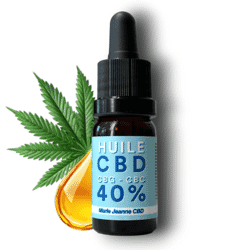The differences between CBD, CBN and CBG

What are Cannabinoids?
Cannabinoids are a group of chemical compounds naturally present in the hemp plant. They are recognized for their unique interactions with the human body's endocannabinoid system, a complex network involved in various physiological processes, such as pain perception, mood, and immune response.
Among the more than 100 cannabinoids identified, THC (tetrahydrocannabinol) is most known for its psychoactive effects, that is, its ability to produce a "high" sensation. This molecule has played a major role in the cultural and legal perception of cannabis. Historically, THC was the first cannabinoid to be isolated and synthesized, paving the way for a better understanding of cannabis chemistry. However, other cannabinoids like CBD (cannabidiol), CBN (cannabinol), and CBG (cannabigerol) are gaining popularity due to their potential benefits without the intoxicating effects associated with THC.
CBD, in particular, has become famous for its many potential applications in health and wellness. Unlike THC, CBD does not produce psychoactive effects, making it appealing for those seeking a healthy experience without altered consciousness. For those interested in CBD, it is essential to understand the importance of quality and extraction method from the hemp plant. Cold-pressed CBD oil is an example of a product that highlights the purity and integrity of cannabinoids. This method preserves the delicate compounds of hemp, offering a more authentic and respectful experience of the original plant.
The Peculiarities of CBN and Its Differences from CBD
CBN, or cannabinol, is another lesser-known cannabinoid that is gaining interest for its distinct properties. Unlike CBD, CBN is not directly produced by the hemp plant. It forms instead as a degradation product of THC when the plant ages or is exposed to air and light. This unique origin gives CBN its particular characteristics.
- Effects and Applications: According to recent American studies, CBN is often associated with sedative effects, making it potentially useful for treating certain sleep disorders. While these effects are less pronounced than those of THC, they are distinctly different from those of CBD, which is known for its calming properties without necessarily inducing sleepiness.
- Interactions with the Endocannabinoid System: CBN acts on the body's cannabinoid receptors differently from CBD. While CBD has a low affinity for CB1 and CB2 receptors and acts through indirect mechanisms, CBN binds more directly to these receptors, albeit less effectively than THC.
- Comparison with CBD: In conclusion, CBD is much more studied and recognized for a wider variety of potential benefits. For CBN, however, scientific studies demonstrate that this molecule could offer specific advantages in treating certain conditions, particularly those related to sleep.
The Specifics of CBG and Its Differences from CBD
CBG is often referred to as the "parent" of other cannabinoids, including CBD and THC. It is formed early in the plant's life cycle and is the chemical precursor from which other cannabinoids are synthesized. Due to this rapid transformation into other compounds, CBG is present in relatively small amounts in the mature plant. This peculiarity makes the extraction and production of CBG more complex and costly than that of CBD.
- Effects and Application: Research on CBG is still in its early stages, but preliminary studies suggest it could play an equally beneficial role. For example, ongoing studies show potential in reducing inflammation, combating pain, and even protecting nerve cells, but nothing has been officially validated to date.
- Interactions with the Endocannabinoid System: Unlike CBD, which has a low affinity for cannabinoid receptors, CBG interacts directly with the CB1 and CB2 receptors of the endocannabinoid system. This interaction could explain some of its distinct properties, including its potential anti-inflammatory effects.
- Comparison with CBD: Although CBG and CBD share some properties, such as their non-psychoactivity, CBG is distinguished by its direct interactions with cannabinoid receptors and its unique role as a biochemical precursor in the cannabis plant, as well as its potential use in reducing inflammation.
CBN vs CBD vs CBG: Which to Choose?
In the end, the choice between CBN, CBD, and CBG will depend on your personal needs and goals. Each cannabinoid has its own characteristics and benefits, and experimenting with each may be useful to determine which is best suited to your situation.
It is also important to consult a healthcare professional before incorporating these cannabinoids into your routine, especially if you have pre-existing medical conditions or are taking other medications. With a clear understanding of their differences and potential applications, you can make an informed choice and make the most of the unique properties of each cannabinoid.




